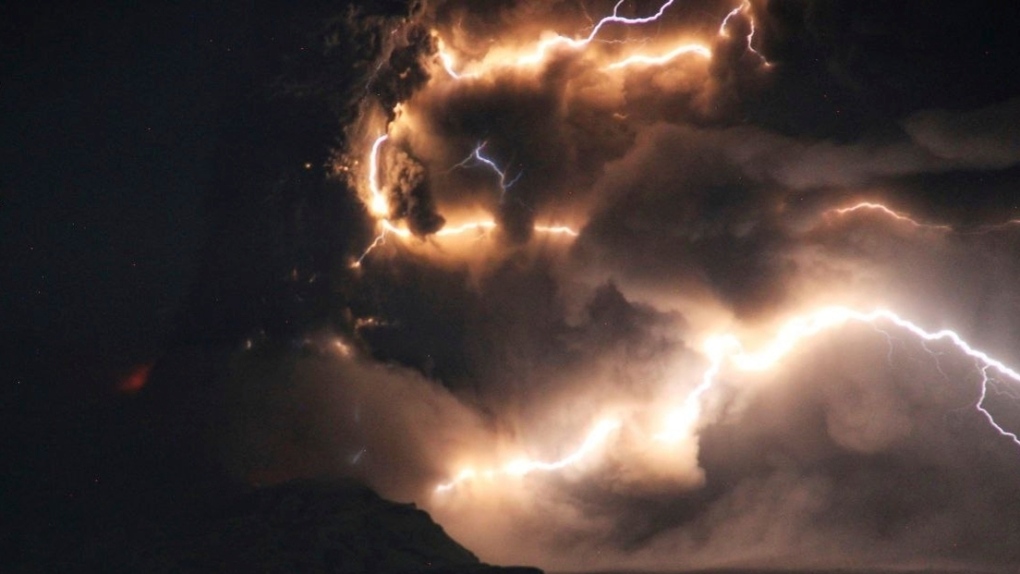WASHINGTON - U.S. House Speaker Mike Johnson is currently in negotiations with the White House as he prepares to push forward critical funding for Ukraine and Israel through the House.
House Republican Leader Steve Scalise disclosed on Thursday that Johnson has been in talks with White House officials to create a package that differs from the Senate's $95 billion foreign security package, incorporating various Republican demands. This comes after Johnson delayed aid for months in an effort to find the opportune moment to advance a package that will require significant political maneuvering. "There has not been an agreement reached yet," Scalise stated. "Obviously, an agreement would need to be reached not only with the White House but also with our own members." Johnson, a Republican from Louisiana, is currently navigating a Republican conference embroiled in debate over support for Ukraine, while also contending with two presidential contenders with conflicting views on America's role in the global arena. President Joe Biden has criticized Republicans for allegedly aiding Russian President Vladimir Putin by failing to assist Ukraine, which he claims undermines U.S. security. Conversely, former President Donald Trump has expressed a desire to negotiate an end to the conflict and adopt a more isolationist stance for the U.S. In an attempt to garner support or prevent opposition towards the Ukraine funding package, Johnson is scheduled to meet with Trump at his Mar-a-Lago club in Florida. He has been consulting with Trump in recent weeks to secure his backing for the funding proposal. Additionally, Senator Markwayne Mullin from Oklahoma, a Republican closely aligned with House lawmakers, has engaged in extensive discussions with Johnson and Trump on advancing aid for Ukraine. While it is uncertain if Trump will offer political support, Mullin hopes to rally Trump's support for Johnson's position, especially given the precarious nature of Johnson's leadership. Rep. Marjorie Taylor Greene, a Republican from Georgia, has threatened to challenge Johnson's speakership and believes that advancing funding for Ukraine could bolster her case for selecting a new speaker within the GOP ranks. Meanwhile, Johnson has been engaging in talks with the White House regarding legislation that proposes structuring some of the Ukraine funding as loans, accessing frozen Russian central bank assets, and incorporating various policy adjustments. Furthermore, Johnson has been advocating for the Biden administration to lift restrictions on approvals for Liquefied Natural Gas exports.He has also raised concerns about policy changes at the U.S.-Mexico border. Despite facing resistance from some hardline House conservatives, Johnson must navigate a divided majority and collaborate with Democrats to advance key legislation. House Democratic Leader Hakeem Jeffries emphasized on Thursday that the House's only viable path forward is to vote on the Senate's national security package, indicating that Democrats would support Johnson in retaining his speakership if he complies. Although Democrats have urged Johnson to conduct a vote on the Senate package, there remains division within the party regarding providing offensive weaponry to Israel amidst its military campaign in Gaza, resulting in civilian casualties. The Biden administration, responsible for managing military funding, has issued stern warnings to Israeli Prime Minister Benjamin Netanyahu, linking future U.S. support to the implementation of measures to safeguard civilians and aid workers. Senate Majority Leader Chuck Schumer called on the House to pass the Senate's aid package promptly to prevent granting Putin a victory in Europe, stressing the importance of supporting democracy. In conclusion, Johnson faces a complex and challenging task in navigating political divisions, negotiating critical funding for Ukraine and Israel, and maintaining his leadership role amidst internal and external pressures. The outcome of these negotiations will determine America's stance on global security and humanitarian assistance, shaping its relationships with key allies and adversaries on the world stage.U.S. House Speaker Mike Johnson in talks with White House to promote Ukraine aid efforts
 5 months ago
2669
5 months ago
2669
- Homepage
- World News
- U.S. House Speaker Mike Johnson in talks with White House to promote Ukraine aid efforts
Related
Russia experiences volcanic eruption following 7.0 magnitude...
1 month ago
2057
China Metro Stations Buzz with Personalized Ads as Operators...
1 month ago
2014
Accused Mastermind of 9/11 Attacks, Khalid Sheikh Mohammed, ...
1 month ago
2301
Trending in United States of America
Popular
Nokia Reaches 5G Patent Agreement with Vivo After Lengthy Le...
7 months ago
26048
Apple's Upcoming Tablet Lineup: iPad Air to Introduce Two Si...
9 months ago
25976
Xiaomi's First Electric Car, the SU7 Sedan, Enters the EV Ma...
8 months ago
25364
The European Parliament's Bold Move to Combat Smartphone Add...
9 months ago
25312
Unveiling ChatGPT's New 'Memory' Feature Revolutionizing Use...
7 months ago
25212
© OriginSources 2024. All rights are reserved








 English (US)
English (US)